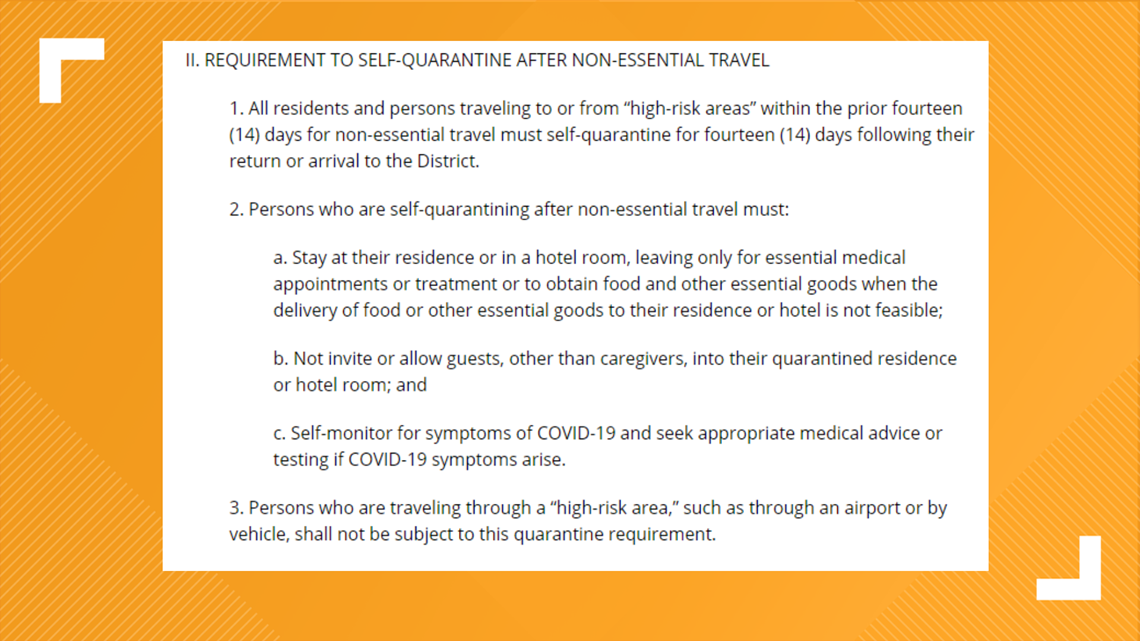WASHINGTON — Anyone traveling to D.C. from states D.C. Health Department deems as "high risk" due to the coronavirus, will be required to self-quarantine for 14 days.
The new travel order applies to people coming to the District for non-essential activities. On the other hand, those who are entering the D.C. region for essential travel or after essential travel are urged to monitor any potential symptoms of COVID-19 for 14 days. If they have any symptoms, they must self-quarantine and get tested or seek medical attention.
During the time people are self-quarantining, the mayor’s order requires travelers to stay in their home or hotel room and only leave for essential medical appointments or essential goods when delivery of food or other essential goods aren't available. The order also says guests are not allowed.
D.C. Health Department released the names of 27 states that are considered high risk and will require individuals to self-quarantine for 14 days. Here's the list below:
- Alabama
- Alaska
- Arizona
- Arkansas
- California
- Florida
- Georgia
- Idaho
- Illinois
- Indiana
- Iowa
- Kansas
- Kentucky
- Louisiana
- Minnesota
- Mississippi
- Missouri
- Montana
- Nebraska
- Nevada
- New Mexico
- North Carolina
- North Dakota
- Oklahoma
- South Carolina
- Tennessee
- Texas
- Utah
- Wisconsin
A comprehensive list of high-risk areas will be made available and updated every two weeks on the city health website.
High-risk states are states where the seven-day moving average of daily new COVID-19 cases is 10 or more per 100,000 persons, D.C. Health Department said.


D.C. Mayor Muriel Bowser issued a mayor’s order on Friday requiring all people traveling into D.C. from high-risk states to self-quarantine. The order does not apply to neighboring states such as Virginia and Maryland.
The order is in effect until October 9, the end of the District’s current state of emergency.

